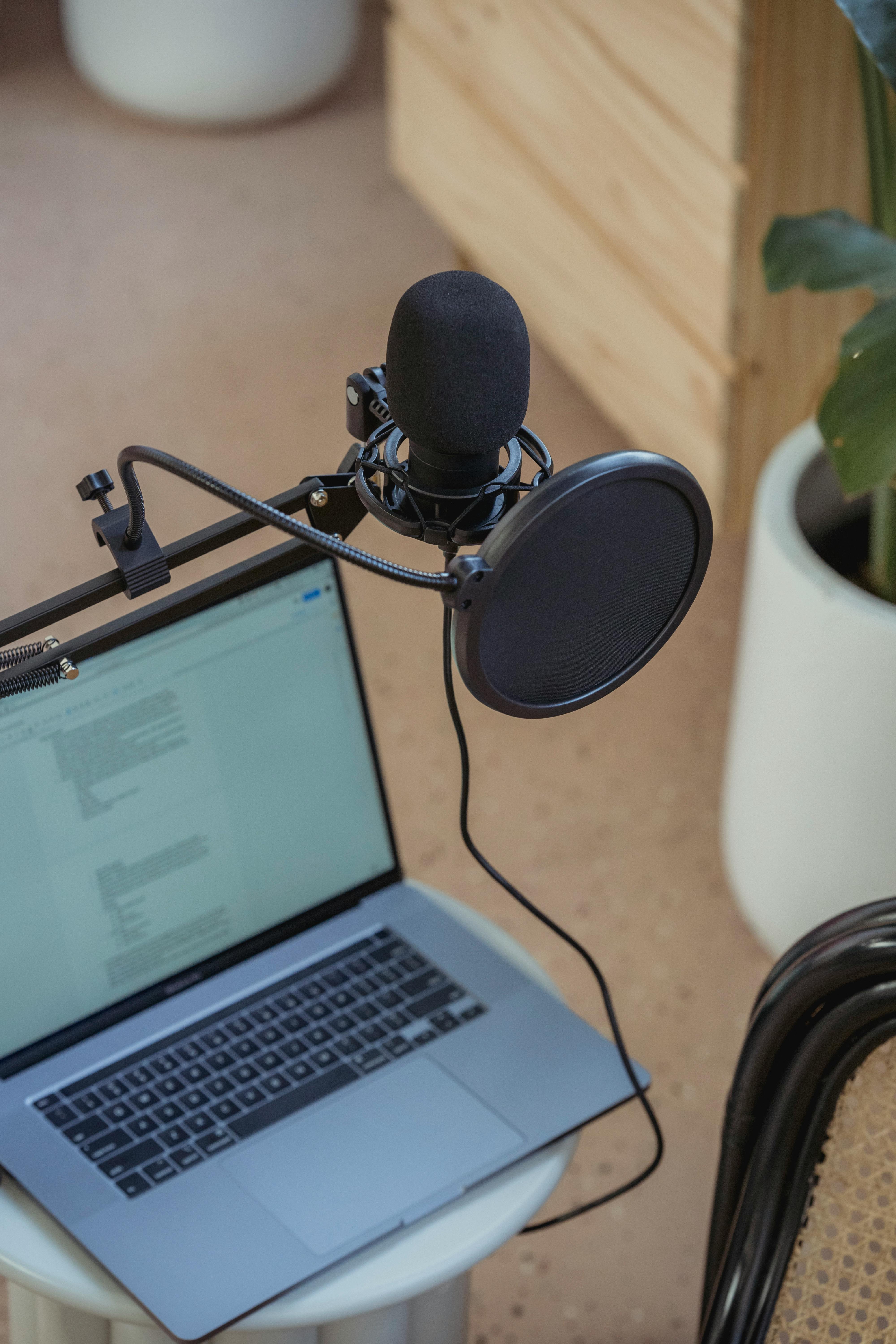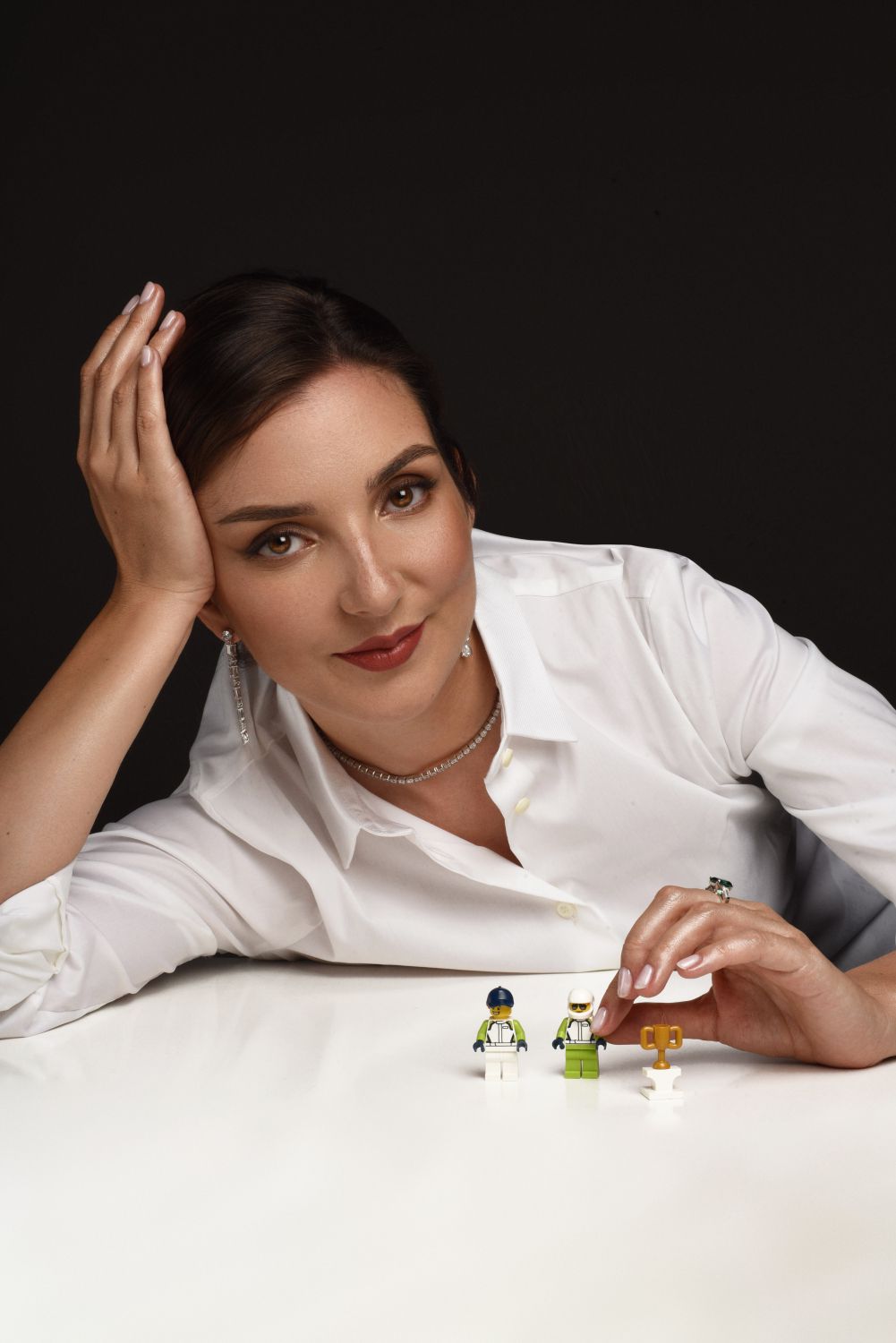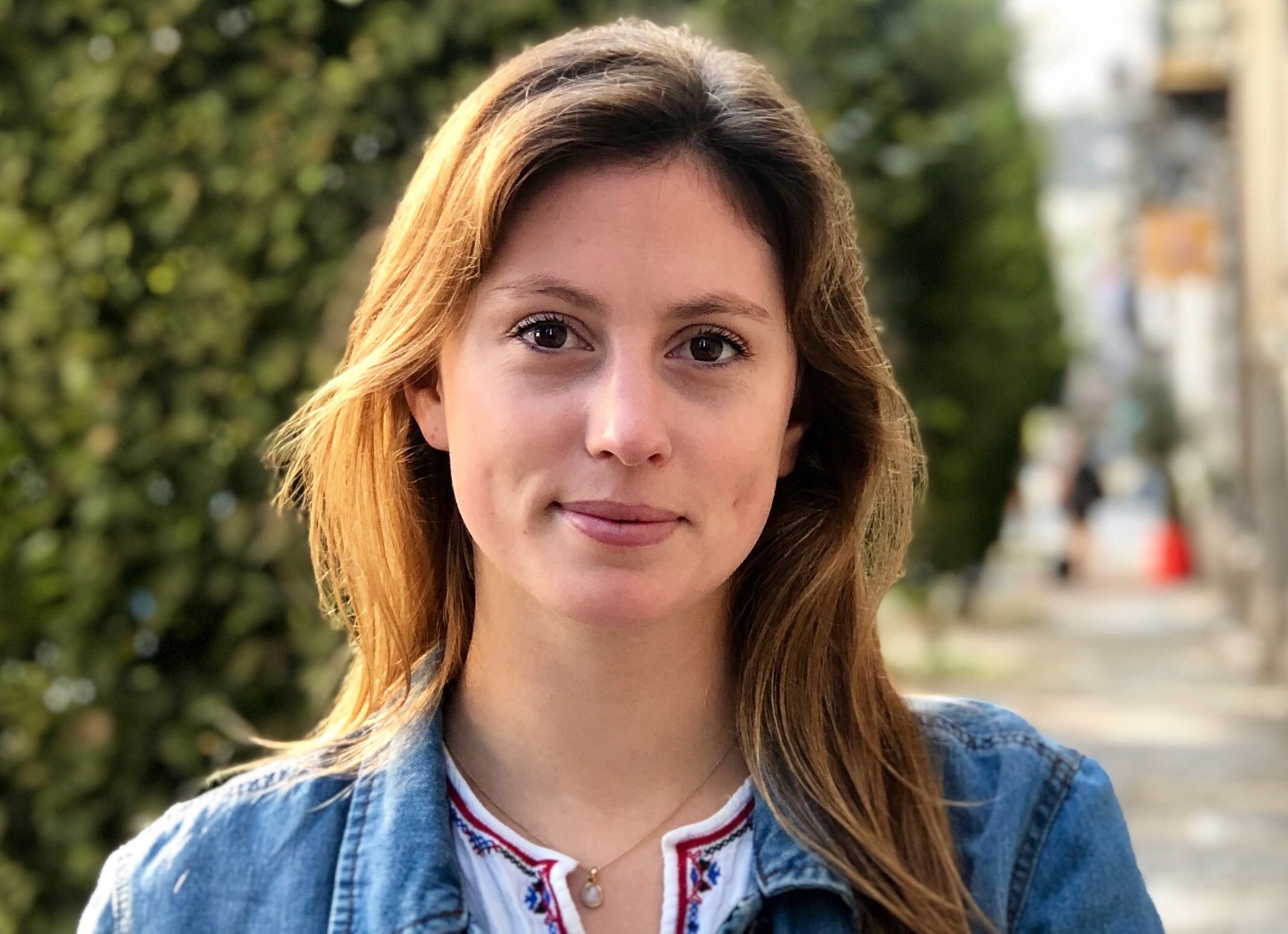After benefitting from months of therapy with Ines Gaston, I am so proud and happy to share this honest, grounded, and inspiring conversation with her where we tackle thought-provoking questions about mental health. Ines is a brilliant therapist. She deeply understands the human experience and makes sense of our modern emotional world. Ines helped me get through the most difficult period of my life and, I am certain, will also inspire you to face your fears and embrace any challenge you encounter.
In this interview, we talk about everyday mental health habits, common myths about therapy, and the pressure to “keep up” in the age of social media. We dive into comparison, overwhelm, the fear of uncertainty, and why it’s so hard—but so important—to stay grounded when everything feels chaotic. Ines also shares thoughtful strategies for navigating information overload and finding confidence when fear of failure creeps in. Whether you’re already in therapy, curious about it, or just need some clarity and calm in the noise of daily life, this conversation is for you!
Hi Ines! Can you tell us about yourself?
Happy to do so! It’s basically a loop. I studied clinical psychology as my first Masters and I graduated in at the University of Brussels and then I worked in psychiatry for a little more than a year and I realised it was not my jazz. I had a very hard time managing protocols and being part of certain teams with a lot of opinions and I felt that I just didn’t fit in the mentality, so I decided to quit that world, even though I had studied it for about 5 years.
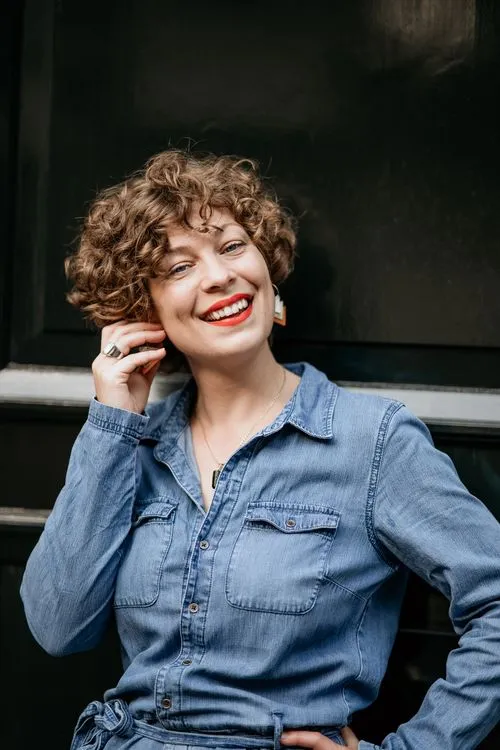
And then I basically jumped into a start up that was specialised in digital health coaching. They had the patent for Europe and that was before the iPhone existed, mind you! So, there were already cell phones, but there were no apps. It came to the market, but back then it was still pretty expensive and apps were just not a thing yet. I joined the research and development team, which means that I was part of a postdoctoral team and what we did was basically translate scientific knowledge into practical tools. That’s where my love for resilience kind of started.
Within that start-up, I evolved into account management because I was very social. I was very good with clients, and then project management, etc. It was the beginning of my career, so I was really young, I was not making a lot of money, I was doing a lot, a lot of hours, and I was looking around at my friends who were thriving and who were, you know, financially getting ahead. That’s when I said “you know what, even though I love this lifestyle, I’m paying a big price”.
The one thing that makes a huge difference is just to have a moment with yourself every day, connect with yourself, check in with yourself.
I worked in corporate for about 10 years until 2014. As you mentioned in the beginning, I came down with a massive burnout. Back then, we’re talking 11 years ago, it was not a thing. Even as a clinal psychologist, I had no idea. What is a burnout? What does it do? And so I did the steps, you know, like “oh well, I guess I will have to go to therapy and I’ll get a personal trainer”. I approached everything very practically but it was a whole journey where I needed to figure out what the F was happening!
That’s when more holistic approaches, including the nervous system and the brain, came into the picture. That’s when I decided to roll with it. And that’s how I got back into psychology! I went back to my initial plan of becoming a therapist, but I did it online. Eight years ago, I moved to Amsterdam after being in Latin America and Prague, and all over the world. I set up camp there and that’s how I started growing, taking those steps, teaching, and giving corporate trainings and working one-on-one. The rest is history. That’s how I got into therapy again.
What's a simple thing anybody can do for their mental health?
I think the one thing that makes a huge difference is just to have a moment with yourself every day, connect with yourself, check in with yourself. It is so simple and yet so many people disregard it. You know, we wake up, the alarm goes, and then we either snooze or we go into the rush and then we go, go, go, go, go, go until we are back in our beds and then a lot of us are dealing with sleep problems… it’s a signal that you are overwhelmed, that some parts of your body or maybe your brain needs some attention.
Takeaway
Check in with yourself every day. Find something that works for you. For instance, you could do a 5-minute journal like a gratitude journal, or you could practice journaling. You could do some meditation, you could go for a walk, just have that moment where you ask yourself: Where am I? What’s going on? How do I feel? Where’s my mind? Am I happy?
Just a few minutes a day would make a massive difference. The reason why has everything to do with what I call “awareness”. I believe that awareness is already 60% of the solution, if you are aware that certain things are happening. Then we can go into the nitty gritty, later maybe. But the awareness and the awareness of patterns of thoughts or emotions, acknowledging that gives you back your power because it gives you the freedom to choose differently. Just a few minutes a day, it’s so important.
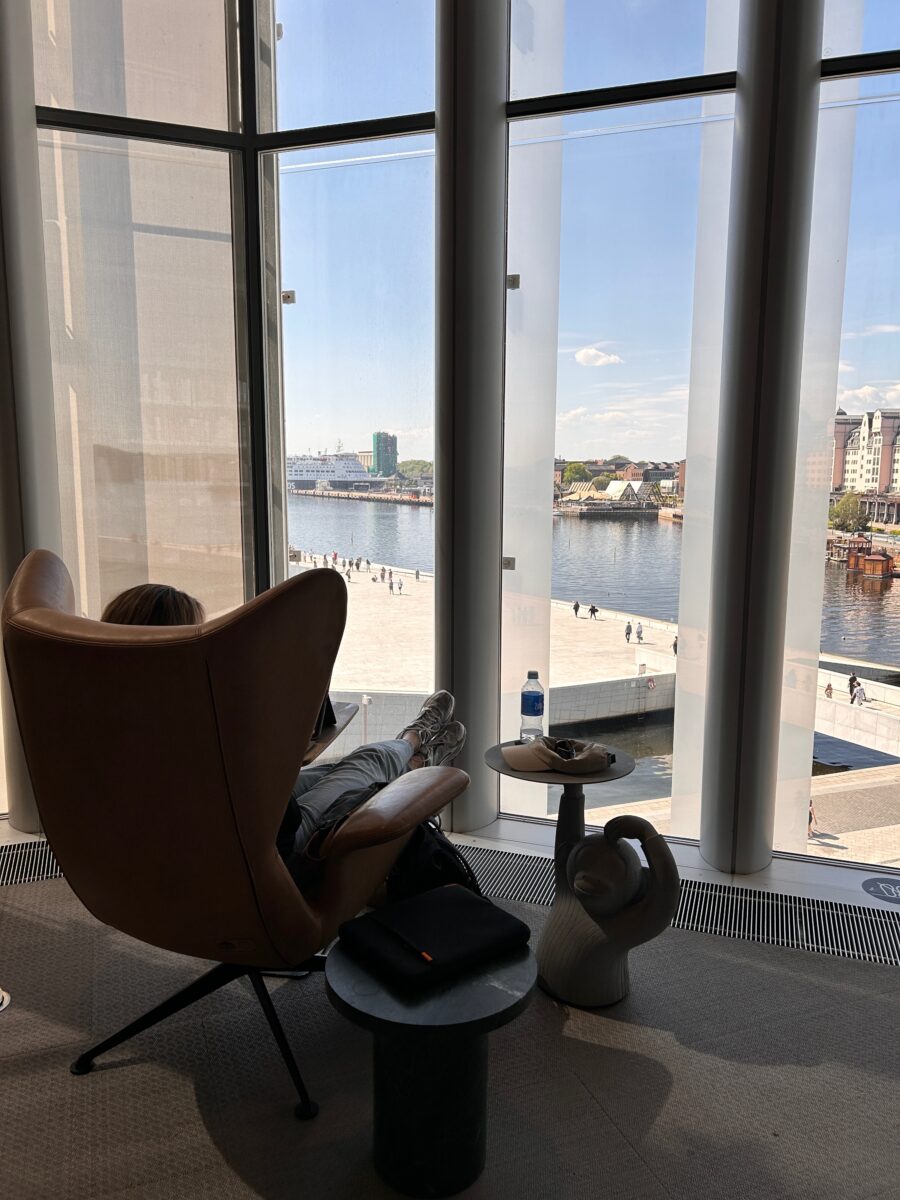
The Wisdom of Insecurity: Reflexions on the Age of Anxiety
In The Wisdom of Insecurity, Alan Watts argues that humans are too preoccupied with the past and future, and that this obsession with time creates anxiety and unhappiness. He suggests that individuals should instead focus on living in the present moment and accepting the inherent uncertainty of life in order to find true happiness and inner peace.
How do you approach misconceptions about therapy?
The first thing that is important to get clarity on is that therapy is a tool. It is a tool that you use that you utilise to get you from A to B. Sometimes, we don’t really know what B is and then therapy will help you to get that clearer. I don’t believe there is one therapist for the rest of your life. If you’ve been with the same therapist for 20 years, I would challenge that.
Takeaway
Context is everything. Depending on what your question is, what your challenges are, what your problem is, or what your intention is, you need to find and start looking for tools that can help you. That is, for me, the most basic, most keen answer to “what is therapy?”. It is a tool that you can use. It’s a resource that you have, and you can play with it.
A lot of the time, people hide behind misconstrued judgments because it’s easier than doing the work. The first step is the hardest: looking for help means that you are allowing yourself to feel a certain vulnerability. When looking for therapy, you’re allowing yourself to acknowledge that you need help, you want something to change, and you just don’t really know what that is. That comes with vulnerability. That is something, unfortunately, that people struggle with.
I think that one of the things that our generation, especially the younger ones like people that are 20-30 years old, they have a lot of discomfort when it comes to feeling, so they become very avoidant. And so it’s easy to tell them “therapy is not really working, just like education is not really working”. But in the end it’s really about character-building and learning. Therapy is about creating that context and not being at the mercy of the context, but really taking back that power and building it. Therapy is a tool that can help you do that.
A lot of us think that we have more uncertainty, but I disagree. I think that the level of uncertainty has always been the same, but we don't have trust anymore.
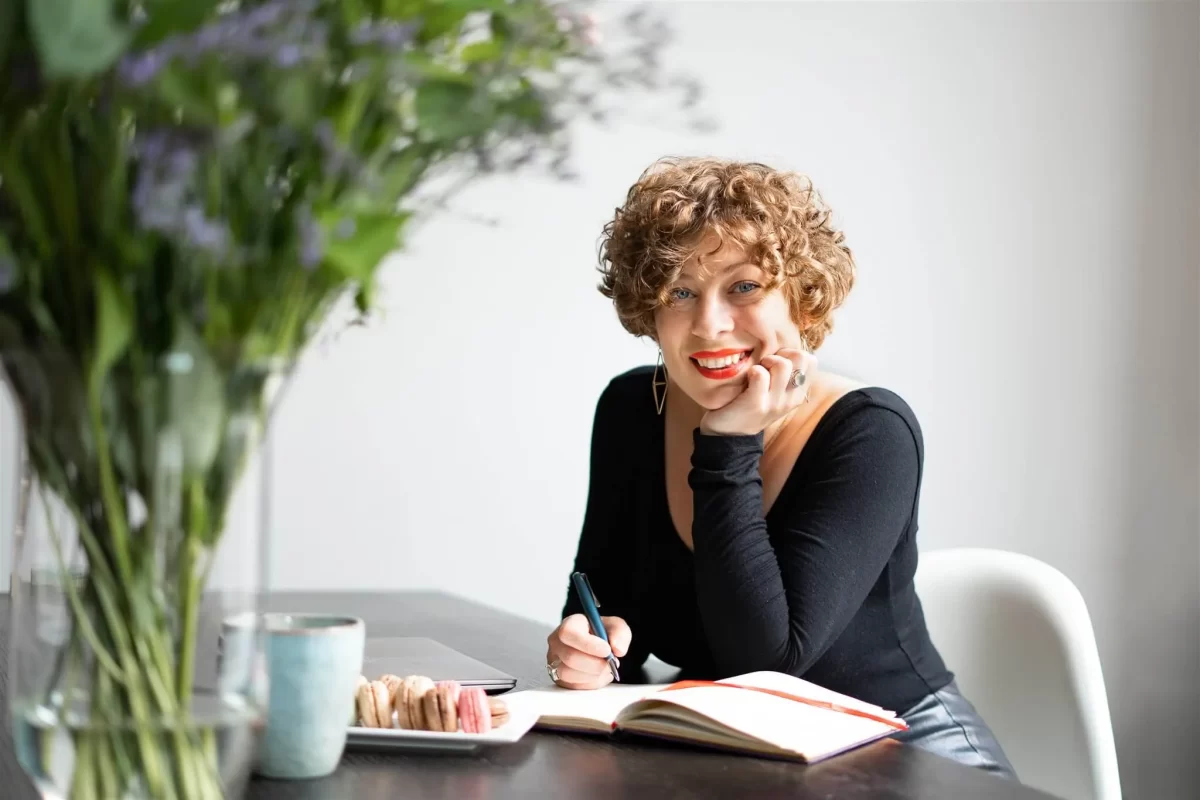
What would you say to someone who is demotivated by comparing themselves to others?
The first thing is, whatever emotions you feel, let them be there. Allow them to be there because a lot of us, subconsciously, we judge ourselves and think we should not feel this way. Instead, work with it. If you can understand this, you can make a big difference in your life. Emotions are not here to punish us or to be bad or to be negative. Emotions are actually here to teach us something.
Don’t get me wrong, it is really getting into the discomfort and feeling “I don’t really know how to do this” and “I don’t know what to do with myself right now”… it’s a lot. But just allowing the emotions to be there and working with awareness and therapy, those are already two tools that you can use. To answer your question more practically, comparing yourself to others is never going to bring you happiness. We do it naturally, which is OK, but just remind yourself that context is everything and you have power over your own thoughts.
Takeaway
Everything that you see on Instagram or on social media in general, remember that it is not the whole picture. It’s just a fragment of it. We create stories around what we see, which is what our brains naturally do, so just use it as an inspiration! If you feel that you’re falling behind, you can either use that as a motivation to go harder, or you can use that as a reason to validate your feelings and to become aware that you have certain thoughts about yourself that you might want to change because being judgmental towards yourself or not celebrating yourself is not going to get you to where you want to go. It’s a process.
What do you think about our consumption of information?
Personally, I got rid of my TV twelve years ago and it’s been the best thing ever. There was a study I read showing how boredom leads to brilliance, especially if you’re ambitious. I’m an entrepreneur. I travel a lot, I get creative. I need inspiration, so I need to create that space in order for ideas to come, to emerge.
We live in a society where we have so much available to us, which is good, but when you lose yourself in that, it doesn’t really add anymore. It becomes about deciding what are your intentions. So, I got rid of my TV because I don’t have the discipline to not watch TV if I have one. So I got rid of it entirely. And then I was bored an evening, but that made me start music again, drawing, writing, all that! It was beneficial. It was a bit uncomfortable in the beginning, but you just become more intentional with your actions.
Obviously I want to watch series and I want to watch movies, but then I just use a computer and a tiny beamer and I’m good. It’s the same with social media. I love social media. I think it’s really, really powerful. We can do so much good: social media is helping us to connect. But it’s also giving us access to so much information, but it is not a library.
Takeaway
A lot of us consider Instagram as a new Oracle, while it’s just snippets of information. One of the concerns that I have is: we need to keep using our critical minds, we need to keep asking questions. Social media can be really good to inspire you, to trigger you in a way, but then do something with that information. Don’t just consume.
I know it’s difficult, but that is really a movement that I hope that we’re going to achieve. I really hope to inspire people to embrace more intentional living and what that looks like. All of these are great tools, but once you lose yourself in them, it becomes dominating and that’s not good. That’s when we talk about anxiety and not being able to sleep. So you can use these elements as indicators: “maybe I need to change my lifestyle and maybe I need to take a step back and have a bit more of a less technology-driven life”.
We are a generation that has a hard time sitting with discomfort because we are constantly looking for validation.
How to deal with feelings of increasing uncertainty?
A lot of us think that we have more uncertainty, but I disagree. I think that the level of uncertainty has always been the same, but we don’t have trust anymore.
For instance, I grew up in the 90s. If you met somebody and you decided to have lunch together the next day at 12, you trusted that tomorrow at 12 that person was going to show up at the agreed venue. You need to trust even though there is a lot of uncertainty in that. The person can be late, can be stuck in traffic, and we didn’t have the means to text one another and say “hey, I’m running late” or “hey, are we still on for tomorrow?”. We didn’t do that. There was no means. Now everything is instant. We don’t trust anymore. We don’t. We are not being taught to trust anymore. We are constantly looking for validation in everything.
The second thing is, because we have become so efficient and so practical, we don’t need one another anymore. I’ve travelled the world, which means that, for instance, if I do my things in the Netherlands, I just go on the app, I get my code, I sort everything. Everything is automated. When you go to Latin America, for instance, you need to go to a freaking office, stand in line, talk to people, wherever is the office. How long is it going to take? Where is the dude that needs to stamp my passports? We need one another, because there is a lot of uncertainty. So, I don’t think that we have more uncertainty. I think that we have less trust, trust in ourselves in humanity.
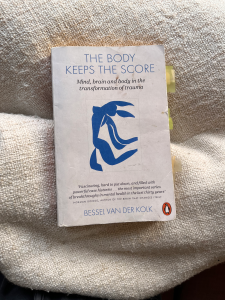
The 5 best books for personal growth
There is no better way of starting a new journey than by reading a book that can change your view of yourself forever. I have selected the five best books for personal growth. They will provide plenty of inspiration, fascinating science facts, and mind-blowing tricks on your journey to happiness and success.
Do you have any advice for people to feel more confident?
Definitely. I think that we are a generation that has a hard time sitting with discomfort because we are constantly looking for validation. Confidence is really embracing the mentality and the conviction that whatever happens, it’s going to be OK and whatever is coming my way, I trust myself enough to be able to deal with whatever needs to be be dealt with because I trust my skills. I trust my brain, I trust my environment. I trust my resources. I trust my network. I think if more people can adapt this way of thinking, that is definitely going to have a major shift.
I do feel that people are underestimating the power of network and relationships. This is something that I recently rediscovered. I’ve been in the Netherlands for quite a while, almost a decade. I was hungry for community and connection. I think the Netherlands is an amazing country, and it is super practical with a lot of opportunities. But one thing that I was struggling with personally because I’m a very sensitive soul is that it’s highly competitive and I was missing a group of people who would help me move forward. I thought “I can’t do this anymore” and so now I’m in Africa. In Africa, because this country has so many challenges, you need one another and people help.
The thing is, one of the mantras that I’m I’ve been learning from Africans here is “in Africa, we share”. If I go for take out, I don’t go for take out for me, I go for take out for four people. Do I live with four people? No. But in Africa, you share. And if I have an idea, people will immediately help me to develop it: “I know a friend who knows a friend who knows” and I’m being pushed forward in this country. I was like, wow, this is exactly what I needed. That’s a little deviation just to help people understand that confidence is not only working on yourself, it’s also the context that you create around you.
Takeaway
I could tell you “do this to be confident”, but if you are operating in a highly narcissistic, toxic environment, it doesn’t really matter if you have confidence or not. It’s still a toxic environment. So, yes, there are a lot of things that you can do yourself, but I also want to challenge people to look at their environment and to become really critical and not only observing it, but also calling each other out because we need each other.
It’s nice to fight for boundaries and putting yourself out there, calling people out. But also, it’s important to recognise that we need one another, we need to make this work and there is no conversation going on about this. I find that very important if we talk about confidence. Yes, it’s about you and overcoming your fears, but it’s so much easier if you can do that with the knowledge that you have people who have your back.
Awesome! How can people get in touch?
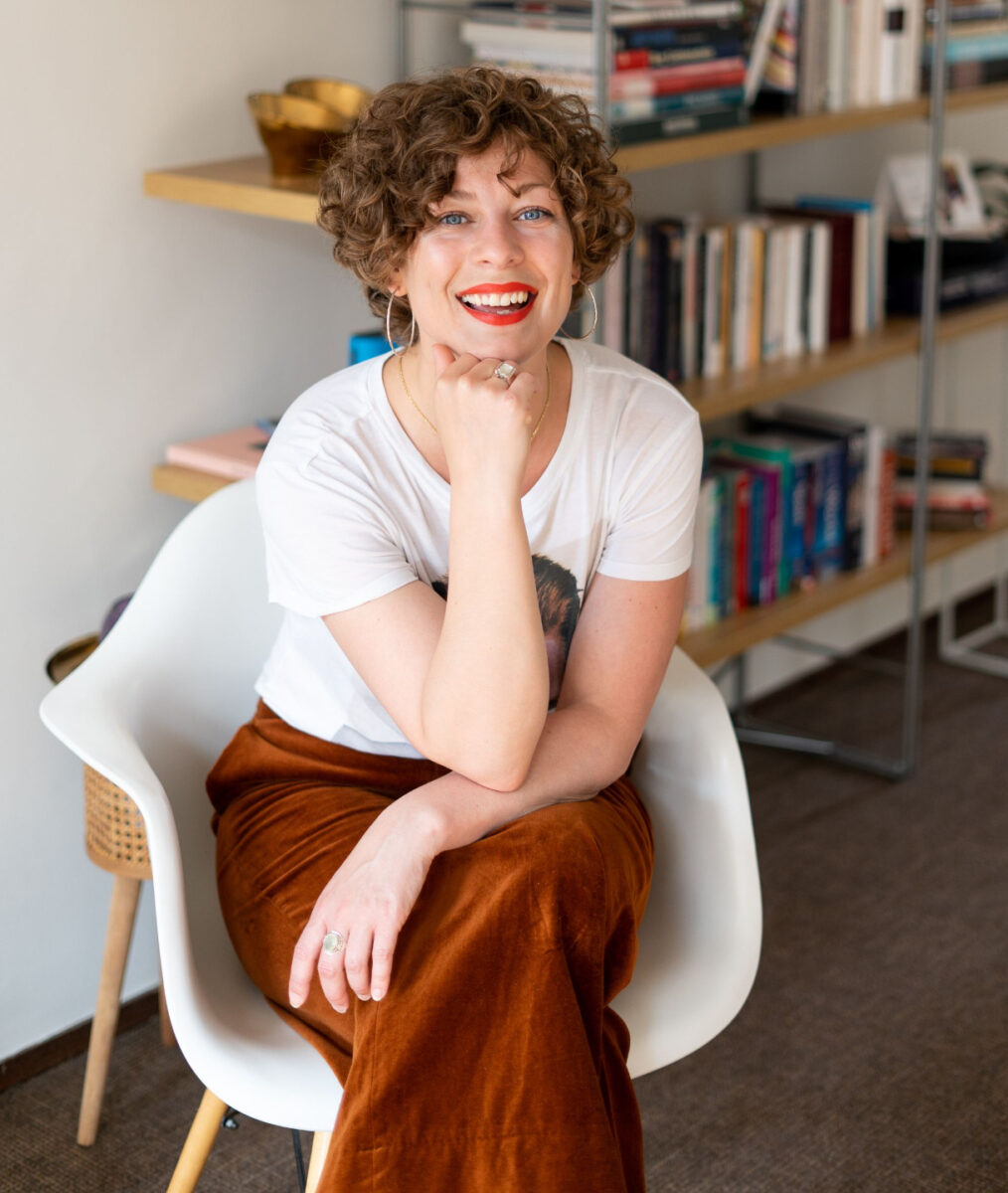
Thank you! So, basically, I do three things. The first thing is I do one-on-one, like I did with you. So, if people wanna have a session with me, they only need one or two. They can reach out. They can find all the information on my website. They can book directly from there.
The second thing that I do, and that’s my biggest love: I teach. I love to be on stage. I love to go to companies, startups, schools, NGOs and just share my knowledge about resilience.
I’ve designed a programme and then that’s the third thing that I do. I have a three-month programme with small groups of 10 people where I help people understand how they can build their resilience based on 6 fundamentals and that’s what we teach. We launch it three times a year.
Whatever you feel like doing, just, you know, you can always reach out and we can have a chat about what could be the best fit.

